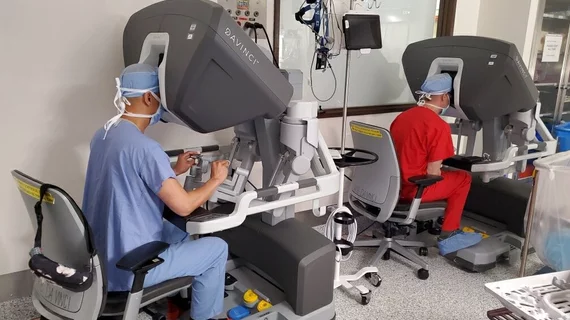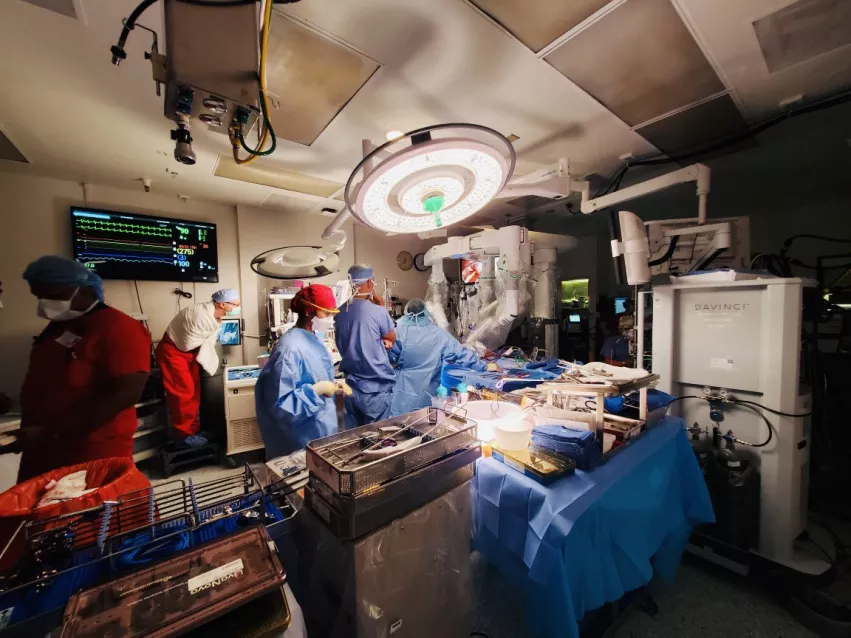Surgeons praise mobility, precision of robotically assisted mitral valve procedure
A team of cardiothoracic surgeons at the University of California San Francisco (UCSF) has completed the first successful robotically assisted mitral valve surgery in San Francisco as the procedure continues to gain momentum throughout the United States.
This news puts UCSF in select company. Only a limited number of facilities, including NYU Langone Health and Cleveland Clinic, currently offer robotically assisted mitral valve surgery.
During robotically assisted mitral valve surgery, the surgeon uses a 3D camera to examine the patient’s heart and then carefully guides the movements of robotic arms and surgical instruments. These procedures are typically recommended for younger patients in search of a quick turnaround.
“Robotically assisted mitral valve surgery allows us to make even smaller incisions with greater precision,” Tom C. Nguyen, MD, robotic heart surgeon and chief of cardiothoracic surgery at UCSF, said in a prepared statement. “By using the robotic arms, we have more degrees of articulation than with our natural wrists. The robot also magnifies the surgical field 10X in 3D. Ultimately, this translates into more precise surgery with faster recovery.”
“Every valve looks different, and the extraordinary 3D vision that the robot camera provides, is just a real step up from all the technologies we have been using in the past,” added Tobias Deuse, MD, a cardiac and transplant surgeon and UCSF’s director of minimally-invasive cardiac surgery. “The camera, together with the increased mobility of the instruments, allows for a very thorough evaluation of the valve and helps us make good and long-lasting repairs.”
The patient in question, a 63-year-old who presented with mitral valve prolapse, is currently recovering at home.
Related Robotically Assisted Surgery Content:
Clinical study of robotic-assisted cardiology solution reaches conclusion
Idaho electrophysiologist 1st woman to complete 1,000 robotic catheter ablations


